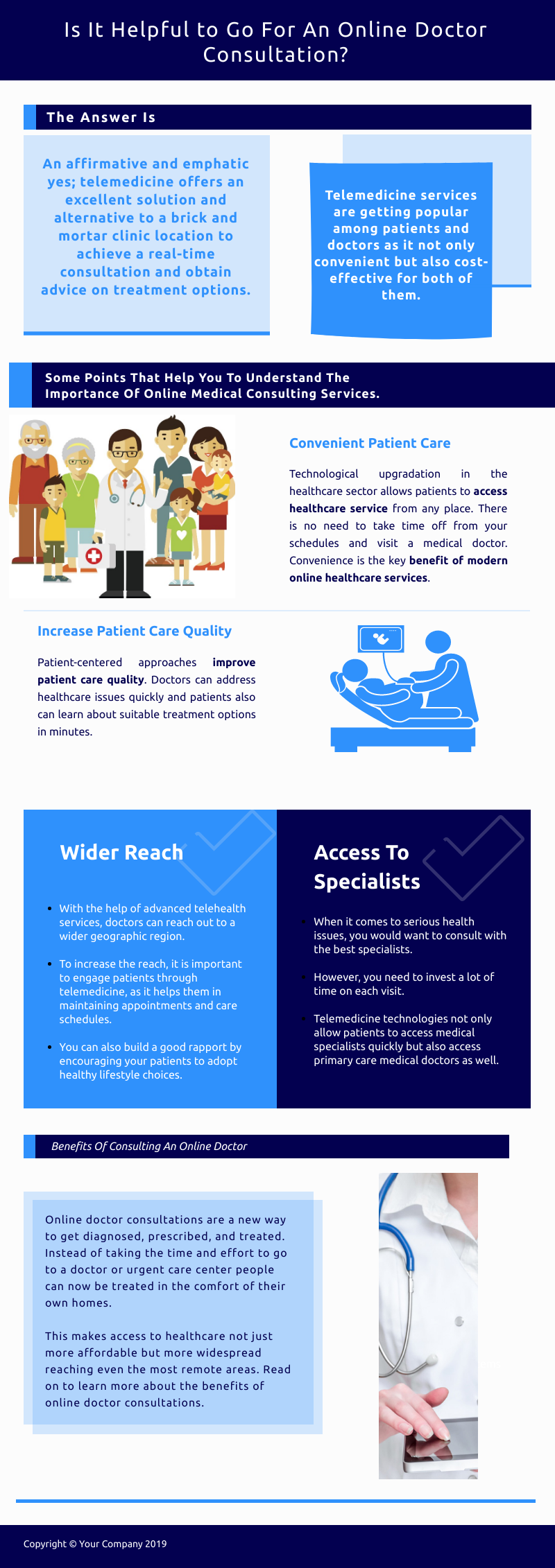Today we live surrounded by new technologies and immersed in social networks: the Internet is ubiquitous in our lives, we have Smartphones, we communicate by chat and video conference often, and we apply new technologies to very diverse fields, both professional and leisure.
Regarding the topic at hand, I think there are several points to consider: Seek here for more information
But in some fields, its use is not very regulated and we have doubts: is online therapy effective ? and if so, how to choose the best online psychologist and under what circumstances to resort to this method? It is undeniable that the internet is a powerful tool: and as with any tool, the key to its effectiveness will be in the ability of the person who uses it – that is, to be a good therapist and how it is used.
Online Help Type
Do we want to do personalized psychotherapy? Any general advice on a problem? That they provide us with self-help resources? Looking for a free service or a professional service?
We must distinguish what it can be to provide self-help resources, coaching, or specific consultations at a general level, from a therapeutic process itself.
It is not the same to ask for an opinion about a problem from a professional, or to someone who has been through the same thing than to read a self-help book related to the subject that concerns you and try to apply it, than to go to psychotherapy sessions to treat our concrete case (although all these things can help us, the first two cases are general advice and support, but they are not therapy.)
Pages are offering free advice, self-help forums, and many other online resources for seeking help or seeking advice.
You can ask about a problem in a psychology forum for free (for example here ) and that can be good to have a professional opinion and other people’s opinions on a topic, but be careful, it is not psychotherapy.

Online Or On-Site Psychotherapy?
If we focus only on psychotherapy, which is the field that concerns us, in the first place it would be necessary to evaluate whether the Online channel is an effective channel for therapeutic communication.
It would take more specialized studies in this regard. But, taking into account the Online Psychotherapy options offered online, personally, and from my experience as a psychotherapist, I value the ways to carry out psychotherapy as follows:
The usual way to perform psychotherapy is face-to-face and in-person sessions. Both individual, family, or couple. Through online platforms we can see various services on the network:
Video conference
If the channel is audiovisual and in real-time, it is very similar to face-to-face sessions. I consider it as the only viable channel for effective Online Psychotherapy sessions.
However, I do not see it suitable for group, family, child, and youth therapy or in cases of certain serious pathologies, in these cases, it is best to go in person. Each case should be previously evaluated and evaluated if it could be approached in this way.
The ideal is to apply it for individual therapies and when the type of problem to consult allows it. It has the advantage of comfort, time flexibility, and economic savings. It can go very well in many cases and even be combined with face-to-face sessions.
Telephone
If it is an auditory-only channel, much of the non-verbal information is lost. It can be a compliment, or a first contact to request information, but not the main channel of communication.
Chat
If the channel is only written, even if it is in real-time, much important information is lost, it takes more time, and can lead to misunderstandings.
I do not consider it a viable channel for psychotherapy. Another thing is a specific consultation or specific question to a specialist through chat: but here in no case could we talk about psychotherapy, but rather a request for information or advice. In case you need to delve into a specific case, it is not the best channel.
The written and deferred channel, as in the previous case, I consider to be suitable for requesting information, a general opinion, or consulting specific topics.
The written channel can indeed be used as a tool in therapy (letters, records, diaries) but within a therapeutic context and not as the only means of communication.
It can be a good complement or a first approach to consulting about a problem, but as an exclusive means of communication for therapeutic work, it falls short.
When To Use Online Therapy?
The online sessions greatly facilitate access to a psychologist when for some reason they can not access face therapy: only an internet connection and webcam is required.
In Strategic Psychology, the profiles of the people who consult me online are very diverse: there are many residents abroad countries who want to do therapy in their language, people with a full schedule, or with complicated schedules to be able to attend face-to-face sessions, people with problems to get around or who reside in places where access to a psychologist is difficult (rural areas, small towns)
The problems that are most often worked can vary from anxiety, grief, life crises, fears, changes in habits, relationship problems, the definition of life goals, etc.
They also represent a significant saving in travel time compared to face-to-face sessions.
How To Choose The Best Online Psychologist?
Once we are clear that online psychotherapy could be good for us, we decided to seek help: How to choose a good professional?
Find out about the professional accreditations, training, and experience of the person you are going to consult.
Ask For Information
Before starting, make clear all the aspects that you have doubts about: how you would approach your problem, what the sessions will be like, frequency, method of payment (and safe payment guarantees), training of the therapist, etc.
If possible, find a professional in your time zone or with whom you can coordinate well in case of a time difference.






